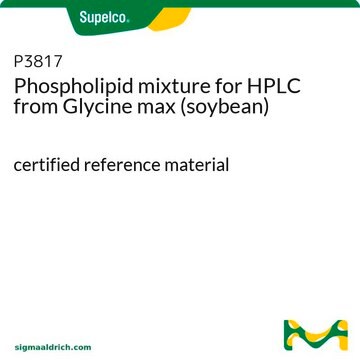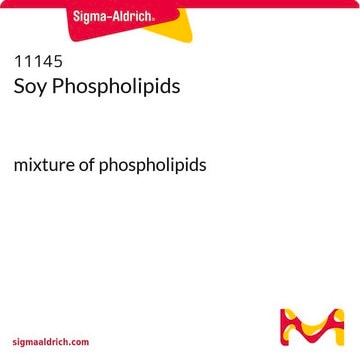52798-U
HybridSPE®-Phospholipid
Small Volume 96-well Plate, bed wt. 15 mg, volume 0.8 mL, pk of 20
About This Item
Recommended Products
Quality Level
form
solid
composition
bed wt., 15 mg
packaging
pk of 20
technique(s)
solid phase extraction (SPE): suitable
volume
0.8 mL
matrix active group
zirconia-based phase
application(s)
food and beverages
Looking for similar products? Visit Product Comparison Guide
General description
The "In-well" and "In-cartridge" precipitation methods are available for the HybridSPE-Phospholipid 96-well version and HybridSPE-Phospholipid Ultra cartridge in which biological plasma/serum is first added to either the well or cartridge, followed by acidified acetonitrile (precipitation agent). After a brief mixing/vortexing step, vacuum is applied. Because the 96-well and Ultra cartridge versions contain a series of low porosity hydrophobic filters/frits, the packed-bed filter/frit assembly acts as a depth filter facilitating the concurrent removal of both phospholipids and precipitated proteins during the extraction process. Standard HybridSPE-Phospholipid cartridges require an "off-line" precipitation method.
Features and Benefits
- Merges the simplicity of protein precipitation and the selectivity of SPE via the targeted removal of phospholipids
- Reduce ion-suppression through the complete removal of phospholipids and precipitated proteins
- 2-3 step generic procedure
- Minimal to no method development
- Available in 96-well and 1 mL cartridge dimensions
Legal Information
Storage Class Code
11 - Combustible Solids
WGK
WGK 3
Flash Point(F)
Not applicable
Flash Point(C)
Not applicable
Choose from one of the most recent versions:
Certificates of Analysis (COA)
Don't see the Right Version?
If you require a particular version, you can look up a specific certificate by the Lot or Batch number.
Already Own This Product?
Find documentation for the products that you have recently purchased in the Document Library.
Customers Also Viewed
Articles
An article focusing on ion-suppression and phospholipid contamination and some of their major causes and difficulties.
An article focusing on ion-suppression and phospholipid contamination and some of their major causes and difficulties.
An article focusing on ion-suppression and phospholipid contamination and some of their major causes and difficulties.
An article focusing on ion-suppression and phospholipid contamination and some of their major causes and difficulties.
Protocols
A simple method to enrich phospholipids from plasma samples, involving a HybridSPE-PPT 96-well plate that both retains phospholipids and removes precipitated proteins.
A simple method to enrich phospholipids from plasma samples, involving a HybridSPE-PPT 96-well plate that both retains phospholipids and removes precipitated proteins.
A simple method to enrich phospholipids from plasma samples, involving a HybridSPE-PPT 96-well plate that both retains phospholipids and removes precipitated proteins.
A simple method to enrich phospholipids from plasma samples, involving a HybridSPE-PPT 96-well plate that both retains phospholipids and removes precipitated proteins.
Our team of scientists has experience in all areas of research including Life Science, Material Science, Chemical Synthesis, Chromatography, Analytical and many others.
Contact Technical Service







